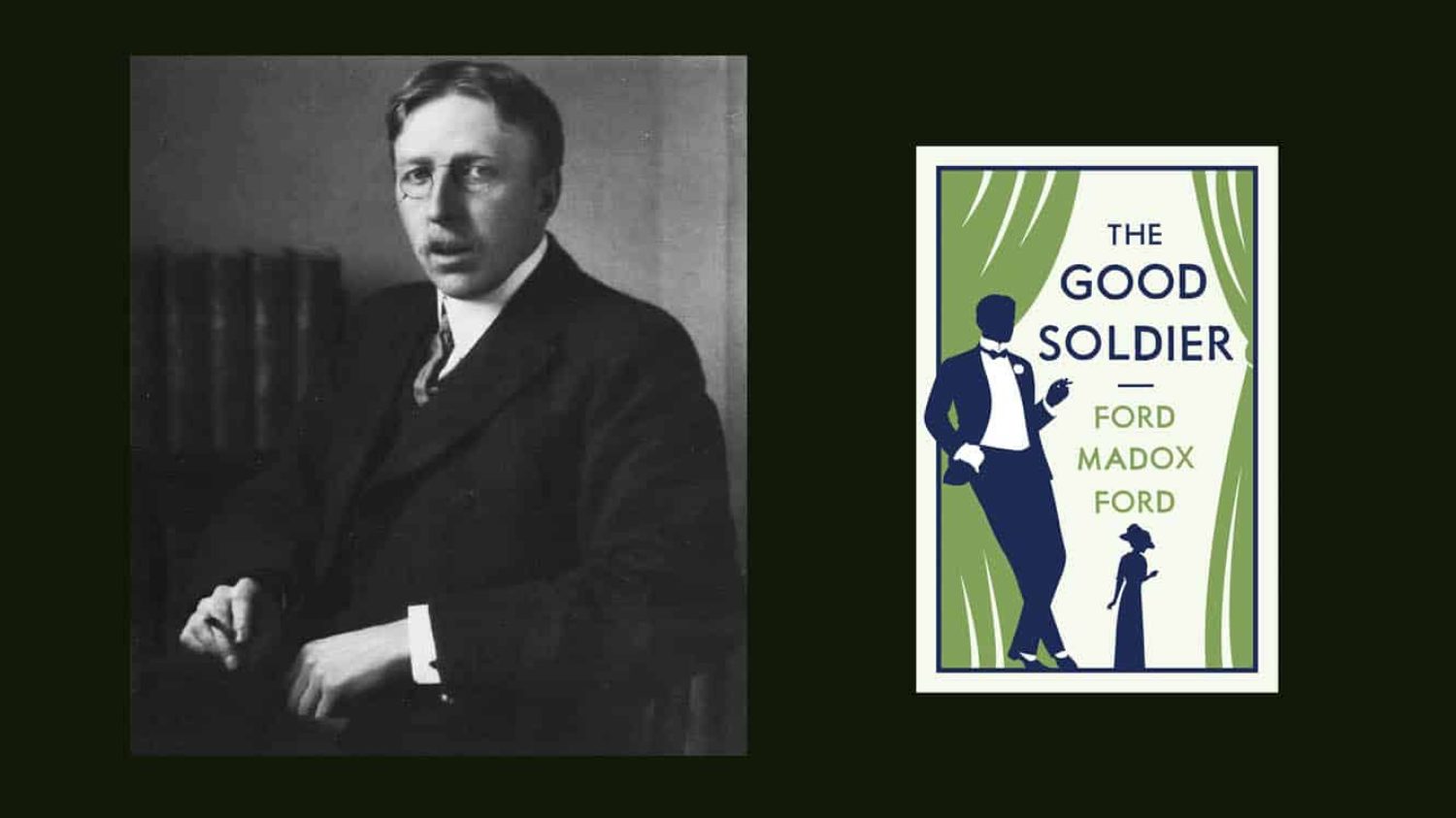Ford’s 1915 poem Antwerp, was described by T.S. Eliot as “the only good poem I have met with on the subject of war”. [1]
Ford Madox Ford, born Ford Hermann Hueffer on 17 December 1873, in Wimbledon, Surrey, England, was a prolific English novelist, poet, critic, and editor.
Ford’s childhood was shaped by a rich cultural environment. He belonged to a family of artists and intellectuals and was surrounded by the bohemian and artistic circles of Victorian England. His father, Francis Hueffer, was German, and his mother, Catherine Madox Brown was English. The eldest of their three children, Ford was named after his maternal grandfather, the Pre-Raphaelite painter Ford Madox Brown. His father became chief music critic for The Times, and his mother’s older half-sister was Lucy Madox Brown was the wife of William Michael Rossetti and mother of Olivia Rossetti Agresti. His paternal grandfather, Johann Hermann Hüffer was the first to publish Westphalian poet and author Annette von Droste-Hülshoff, and the renowned artist William Morris was his uncle.
Ford developed an early appreciation for literature and art. His father died in 1889 when he was 16. The family was left with few assets and moved to his grandfather’s home. Young Ford revered his grandfather, and later in his life wrote his biography and changed his name to reflect his grandfather’s. Ford studied literature and philosophy at University College, London, and began his career as a writer and editor. His early literary endeavours included poetry, essays, and short stories.
In 1894, Ford eloped with his school girlfriend Elsie Martindale, and two daughters were born. Their neighbours in Winchelsea included the authors Joseph Conrad, Stephen Crane, W.H. Hudson, Henry James in nearby Rye, and H.G. Wells. The early years of married life were marked by financial struggles, pushing him to pursue a career in journalism and editing. In 1908, Ford became the editor of the English Review, a literary magazine that provided a platform for emerging writers. This editorial role allowed him to interact with some of the leading literary figures of the time, and he developed a close and influential friendship with Joseph Conrad. In 1909, Ford left his wife and set up home with English writer Isobel Violet Hunt, with whom he published The English Review.
Ford used the name of Ford Madox Hueffer, but changed it to Ford Madox Ford after World War I in 1919, partly to fulfil the terms of a small legacy, partly “because a Teutonic name is in these days disagreeable”, and possibly to avoid lawsuits from his ex-wife.
Ford’s most celebrated work, The Good Soldier, was published in 1915 and is considered a masterpiece of modernist literature. This novel explores themes of deception, betrayal, and the complexities of human relationships. The narrative structure of The Good Soldier is particularly noteworthy, as Ford employs a non-linear, fragmented style that was ahead of its time.
Throughout his career, Ford Madox Ford continued to write novels, essays, and poetry. He collaborated with other writers and played a significant role in the literary landscape of the early 20th century. Despite facing personal and professional challenges, Ford’s contributions to literature have left an enduring legacy, and his works are still studied and admired for their innovation and insight into the human condition. Ford Madox Ford passed away on 26 June 1939, leaving behind a body of work that continues to captivate and inspire readers today.
Selected links for relevant websites, books, movies, videos, and more. Some of these links lead to protected content on this website, learn more about that here.
